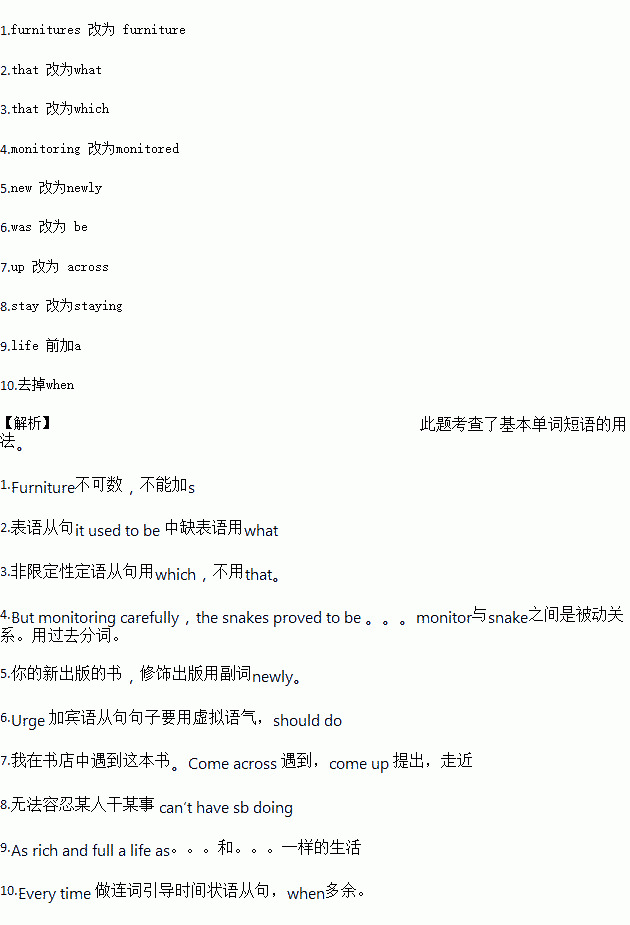题目内容
1.In addition, sometimes I am very clumsy and drop things or bump into furnitures.
2.Pudong Development Zone is no longer that it used to be.
3.The capital of Peru is Lima, that is in the north on the coast.
4.But monitoring carefully, the snakes proved to be no trouble and all went according to plan.
5.Would you like to introduce your new published book to us?
6.They urged that the gym was kept open during the work time.
7.I came up this book in an old bookstore several days ago.
8.Mum can’t have Peter stay up all night long.
9.Just accept them for who they are, and give them encouragement to live as rich and full life as you do.
10.Every time when I returned after an absence, I felt stupid because I was behind the others.
练习册系列答案
相关题目
6.-Did you finish your composition in the exam?
-Given five more minutes,I ________ it for sure.( )
-Given five more minutes,I ________ it for sure.( )
| A. | would finish | B. | were to finish | ||
| C. | would have finished | D. | had finished |
16.The toughest thing about success is ________ you have to keep on being a success.( )
| A. | why | B. | when | C. | what | D. | that |


 Snow Queen and The Ugly Duckling, and some end unhappily, like the Little Match Girl. In The Little Mermaid the author expressed a longing for the ordinary life that he had never had. Andersen never married, and he died in his home in Rolighed in 1875.
Snow Queen and The Ugly Duckling, and some end unhappily, like the Little Match Girl. In The Little Mermaid the author expressed a longing for the ordinary life that he had never had. Andersen never married, and he died in his home in Rolighed in 1875.